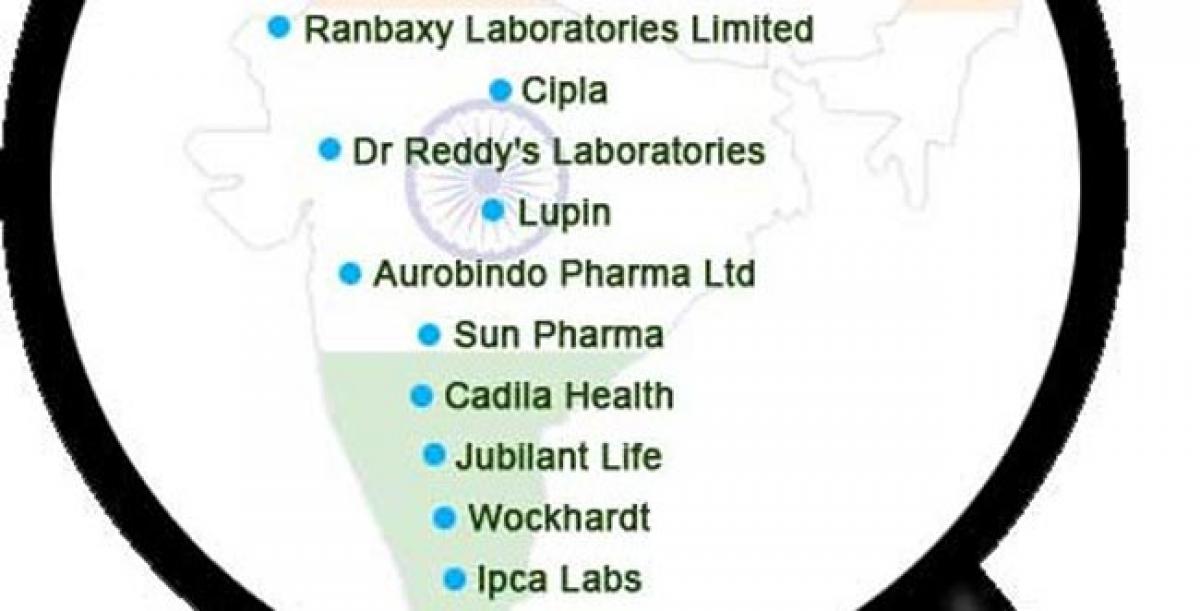Live
- LS polls: Union Minister Bhagwanth Khuba, Dingaleshwara seer, Priyanka Jarkiholi file nominations in K'taka
- Amid show of strength, Congress’ Praniti Shinde files nomination from Solapur
- Tamil Nadu Police gives clean report to Isha Foundation in missing volunteers case
- Home Minister Amit Shah to address public meeting in Goa on April 24
- Gurgaon Open: M Dharma fires 67 for two-shot lead on penultimate day
- Sharad Pawar made many attempts to finish Shiv Sena, claims Maha minister
- Former England opener Raman Subba Row dies aged 92
- IPL 2024: Impact player rule is affecting the progress of half all-rounders, says Zaheer Khan
- ‘Teppa samudram’ review: Entertains with twists and turns
- ‘Market Mahalakshmi’ review: Blends humour and heartfelt moments
Just In

But Cipla will face competition from other countries that will vie for Africa\'s market share.
Accra: With a $106.8 million strategy to tackle Africa's public health emergencies over the next five years, stakeholders here feel it will be an ideal opportunity for the Indian pharma companies to take advantage, with Cipla taking the lead.
Officials said Cipla plans to invest $88.94 million to set up a facility in South Africa for the manufacture of affordable cancer drugs. Managing Director and Global CEO of Cipla, Subhanu Saxena, said this will enable the creation of the African continent's first bio-cluster.
"A state-of-the-art, world-class manufacturing base in South Africa will allow opportunities for supply-chain partners and related companies to get involved. This, in turn, will allow top-notch research efforts to stay in South Africa and attract research from global institutions too."
But Cipla will face competition from other countries that will vie for Africa's market share.
African Union officials told IANS that by 2018, at least 80 per cent of its 54 member-countries will test and fund preparedness plans to tackle health hazards, conduct outbreak and disaster risk analyses and mapping.
They will also implement policies and guidelines to ensure the implementation of International Health Regulations (IHR) and Disaster Risk Management (DRM) also some areas where India could help.
World Health Organisation (WHO) Regional Director for Africa Matshidiso Moeti said that because diseases in the globalised world know no boundaries, there was the need for a "stronger collaboration to protect national, regional and global health security".
Moeti said implementation of the regional strategy for health security and emergencies would strengthen the capacity of countries in the region to prepare for, prevent, detect, respond to and quickly recover from emergencies in a predictable, dependable and accountable way.
The WHO has said that out of the 100 public health emergencies that occur in the African region every year, infectious diseases account for 80 per cent, disasters for 18 per cent, chemical poisoning and acute severe malnutrition account for only 2 per cent.
"The recent Ebola epidemic in West Africa received the lion's share of attention, but national governments need dedicated resources to contain many other diseases, with looming threats on the horizon. Antimicrobial resistance (AMR), for example, threatens the effective prevention and treatment of an ever-increasing range of infections," the WHO said.
Moeti said countries can do more to tackle outbreaks, many of which are preventable, by addressing the causes and being better prepared to avoid the current unacceptably high death, disease and disability, resulting in subsequent socioeconomic disruptions.
The regional strategy would establish a target under which by 2020 at least 80 per cent of member-states of the African Union should have a fully-functioning public health emergency operation centre (EOC) and a functional national laboratory system and network that meets minimum standards.
The AU also wants that more than 80 per cent of member-states should have an adequate health work force to respond to outbreaks and health emergencies and at least 90 per cent of member-states should be implementing the Integrated Disease Surveillance and Response (IDSR) including event-based surveillance systems with at least 90 per cent country coverage by 2020.
Once the regional strategy is made available, the AU said decisive actions will be needed from member states and their development partners for implementation, ensuring that people in Africa and the world are better protected from outbreaks and other health emergencies.
"The establishment of resilient health systems that can withstand the shock of disasters and potential damage from emergencies is essential for Africa to continue to grow," it added.

© 2024 Hyderabad Media House Limited/The Hans India. All rights reserved. Powered by hocalwire.com







